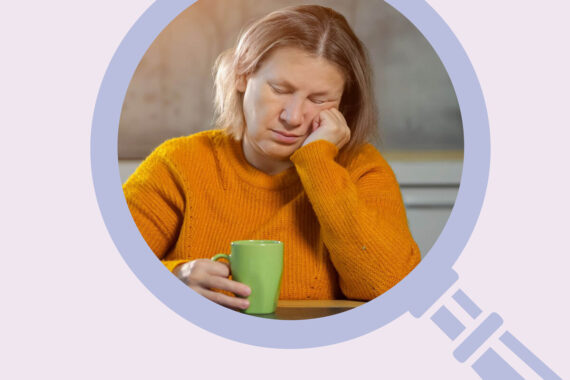What was the diagnosis in this case of treatment-resistant hypothyroidism?

Case of the month – answers: In the latest in our series, Dr Keith Hopcroft asked what was the underlying cause in this patient with hypothyroidism failing to respond to treatment. Did you get the diagnosis? Answer revealed below!
You review a 55-year-old woman who presented a few weeks previously with tiredness. She is on no prescribed medication and simply takes occasional OTC loperamide for longstanding IBS, and uses NSAID gels when her osteoarthritis of her thumbs play up. In the past she has had occasional courses of iron for anaemia which has been attributed to heavy periods.
Her ‘tiredness screen’ is normal except for an aberrant thyroid function test with TSH of 9 mU/L (0.3-5) and FT4 of 7.8pmol/L (7.9-16). You discuss this with her – she’s not terribly surprised, because her mother had hypothyroidism. She’s actually already feeling a little better and attributes her symptoms to some stress, so you agree simply to repeat the blood test in two month’s time.
At this subsequent review, the TFTs are more deranged than before. Her TSH is now 22mU/L and her T4 has dropped to 4.1pmol/L. She is feeling worse, with deteriorating tiredness, further weight gain and some cold intolerance.
You diagnose hypothyroidism and start her on 100mcg of levothyroxine per day.
The in-house pharmacist takes over her care with a view to titrating her dose as needed. Six months later, he discusses her case with you. Despite escalating doses – now 200mcg/day – her TFTs still suggest she is significantly under-replaced. The pharmacist has gone through the protocol for possible causes – she is adamant that she is taking the medication regularly, she takes it on an empty stomach and she is on no medication (prescribed or OTC) that might be interfering with the thyroxine.
What do you think is going on? What blood test might you want to do?
Answer: You look back in her notes. Her diagnosis of IBS was made years ago at a previous practice. It’s not clear what investigations were done at that time. You decide to arrange a coeliac serology screen. This comes back positive, and after referral to a gastroenterologist, she is diagnosed with coeliac disease. At subsequent discussion, she says she just accepted her ‘IBS’ as part of her life and self-managed this with OTC medication – though she acknowledged the symptoms had deteriorated over the last year or so.
Discussion
Malabsorption is one reason why a patient may not respond as expected to usual doses of levothyroxine. In this case, the cause was coeliac disease. It’s not clear whether, in retrospect, this had always been the cause of her ‘IBS’, or whether she had IBS and subsequently developed coeliac disease. This may have contributed to her tendency to iron deficiency anaemia, too. Once on a gluten free diet, her gastrointestinal symptoms eased and her TFTs normalised (in fact, her levothyroxine dose needed reduction).
Because of the link with autoimmunity, patients with hypothyroidism are more at risk of coeliac disease (and vice-versa). This has been recognised for a long time in the literature and there have even been cases where coeliac disease has presented as treatment-resistant hypothyroidism with no gastrointestinal symptoms at all.
Dr Keith Hopcroft is a GP in Essex
Sources
- Virili C et al. Gastrointestinal malabsorption of thyroxine. Endocr Rev; 2019; 40(1):118–36
- McDermott J et al. Celiac disease presenting as resistant hypothyroidism.Thyroid2005;15(4):386-8
For more diagnostic puzzles, see previous articles in our Case of the month series:
- Case of the month answers: What was causing this patient’s nausea and tingling fingers? – Pulse Today
- Case of the month answers – what was causing this patient’s panic episodes? – Pulse Today
- Case of the month – answers: Did you get the cause of the patient’s sudden memory loss? – Pulse Today
- Case of the month answers: Did you get what caused this man’s pityriasis rosea? – Pulse Today
- Case of the month answers – what was the cause of this young worker’s abdominal pain? – Pulse Today
Have you handled a case which had a slightly surprising outcome? Perhaps an elderly man with non-vertigo dizziness? Or an unexpected cause of bradycardia? Would you like to share your case studies with us to help support and inform GPs? Please get in touch if you would like to contribute! [email protected]
Visit Pulse Reference for details on 140 symptoms, including easily searchable symptoms and categories, offering you a free platform to check symptoms and receive potential diagnoses during consultations.












